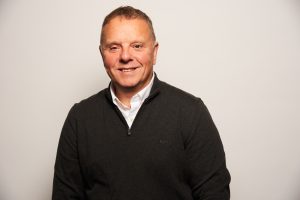West Midlands ‘needs more regional tech sector investors’


Innovative Midlands companies still feel they must head out of the region to seek the financial backing they need to achieve their bigger ambitions.
Although there was a consensus that there was plenty of funding around – although less agreement on how start-ups and disruptors can access it – it is not as easy to access from the Midlands.

“The capital is there for the right kind of idea, it just needs to be more regionally-based,” he said. “Experienced angel investors tend to invest in companies that they can drive to once every month, once every three months.
“Despite the global online crowdcube model and all that kind of thing, actually, where the real action happens is still people getting in a car to go to a board meeting every three months. And therefore we need more regional tech sector investors.”
Conigital director Don Dhaliwal, whose company is working on several mobility-as-a-service projects, has found their own funding roadmap has quickly taken them outside of the region.
“From what we’ve seen, especially if you’re a Dtech (design and technology) or AI company, West Midlands is still quite risk adverse to invest in those type of organisations,” he said.
“As much as we are a Birmingham-based startup, the funders here just don’t have the bandwidth to take on Dtech/AI companies.
“We’re having to go to London and we’re getting interest from China from US, Australia, but not in the Midlands.”
Nigel Gardner, partner at Freeths, agreed there is “still plenty of funding around” but one ongoing hurdle for smaller businesses is a lack of understanding of the process.
He said: “One of the challenges for ‘Fred in the shed’ or the SME, of course, is that funders are often quite sophisticated about what they want out of the funding transaction – and the person who needs the money is less sophisticated about what’s going on in that conversation. That is a huge challenge.”
The West Midlands Growth Company is at the heart of efforts to make the region a more attractive place for companies and funders to do business.
Gavin Perry, who is its business development manager for innovation, is upbeat about the region’s performance and developing reputation for technology businesses.
He said: “We’re creating a new Birmingham Tech Week, we’re seeing new clusters of tech businesses that are starting in Birmingham itself, it’s starting to change, and we’re at the very start of that revolution where businesses are actually saying ‘we’re doing this, we want to be innovative, we want to be that business that’s going to be changing the world or changing certain moments’.
“So even though there are those barriers, we can see there are things happening within the city and the region.”
Dennett acknowledged that funding in the regions is “one of those problems that a lot of people are trying to work at”.
He highlighted the success of Skyscanner, the Edinburgh-based company that was bought by Chinese group Ctrip, resulted in windfalls for a large number of its staff.
“Suddenly there are over 100 potential brand new, high net worth individuals. Importantly they are tech savvy and have been through that growth, have that experience, who will go out and the whole digital tech scene in Edinburgh will lift.
“That’s all we need to do with digital tech – and I appreciate innovation happens everywhere – we only actually need one of those and the whole landscape looks dramatically different. Now they are hard, there are only about 350 unicorns in the world.
“But for a city this size, you only need to do it once and then the whole landscape changes. It’s the Nokia moment for Helsinki, the Microsoft moment for Seattle, the Acorn moment for Cambridge.”









